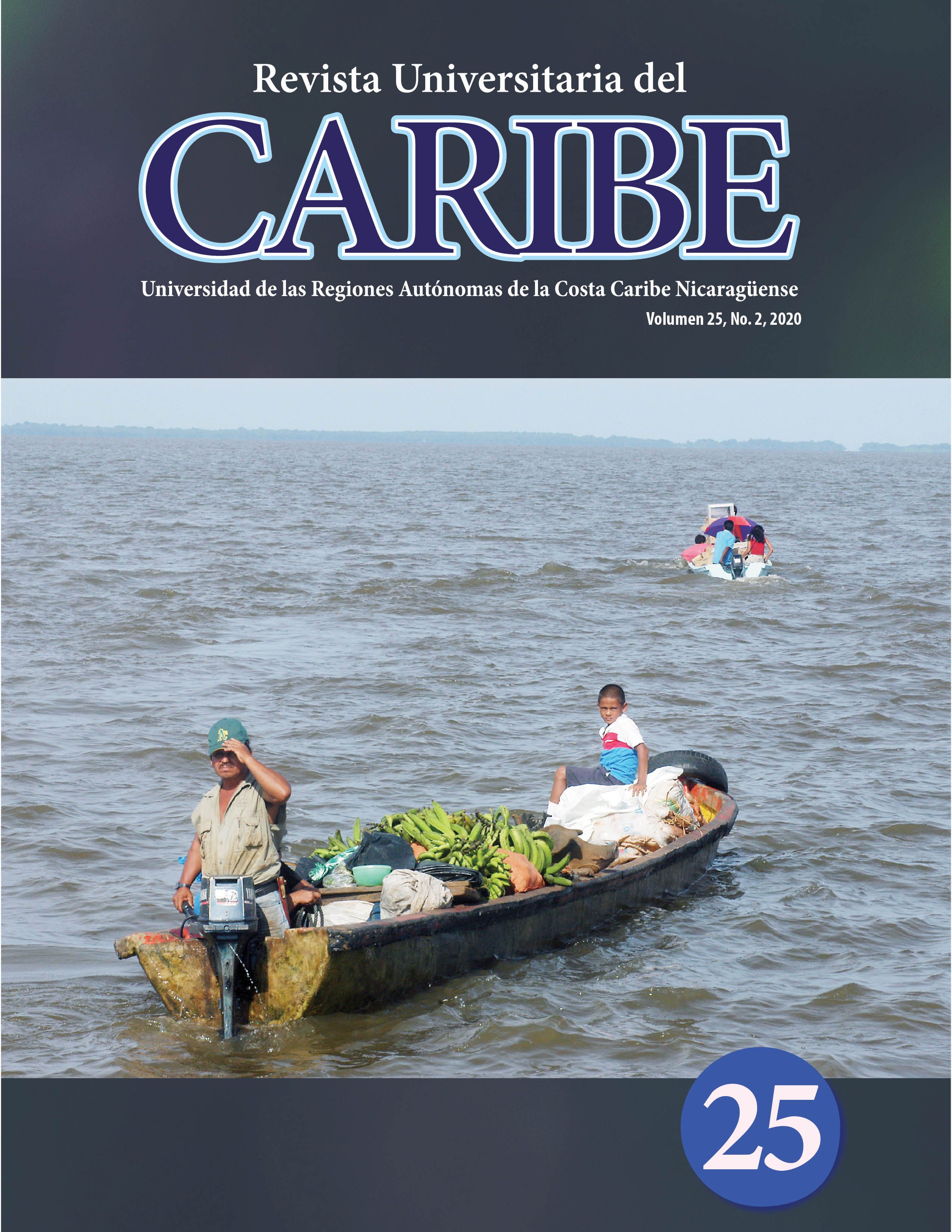The Intercultural community university model and its contribution to community economies in multicultural contexts
DOI:
https://doi.org/10.5377/ruc.v25i02.10476Keywords:
Higher Education, Community Economy, KnowingsAbstract
The intercultural community model of the University of the Autonomous Regions of the Nicaraguan Caribbean Coast (URACCAN) is an educational project that works with the different peoples and ethnic communities that coexist in the diverse territory of Nicaragua; Its purpose is to train men and women to strengthen peoples, accompanying social processes and influencing the construction of their identities from multicultural contexts. This type of research is qualitative with a level of exploratory depth. URACCAN works with the families, sons and daughters of producers to strengthen the family and community economy, from a socio-cultural approach, based on equity, justice, reciprocity and sustainability, they are principles that complement each other and are practiced as a result of a collective and equal agreement among the members of the community. The community economy is presented as a reality in which new and old economic practices are configured which in turn operate as alternative strategies for poverty reduction. It is conceived from ancestral cultures, it is directly linked to our mother nature and is in accordance with the norms of ancestral worldviews, principles and values as the basis of cultures. From these spaces, paths are built that make it possible to rescue educational practices and revitalize the knowings and community knowledge that allow the development of thoughts for change, and that later, the thoughts are translated for the model, into practices to promote learning based on life and development with identity in contexts of diversity of indigenous, Afro-descendants and mestizos peoples for the promotion of intercultural citizenship.
Downloads
577
HTML (Español (España)) 144
EPUB (Español (España)) 174
XML (Español (España)) 126
Resumen (Audio) (Español (España)) 138
Abstract (Audio) 151
Downloads
Published
How to Cite
Issue
Section
License
Propietario de los derechos de autor de los artículos: Los autores guardan los derechos de autor.

Esta revista está bajo una licencia de Creative Commons Reconocimiento-NoComercial-SinObraDerivada 4.0 Internacional. Esta licencia permite que otros puedan descargar las obras y compartirlas con otras personas, siempre que se reconozca su autoría, pero no se pueden cambiar de ninguna manera ni se pueden utilizar comercialmente.

